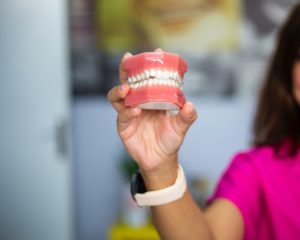4 Common Reasons for a Tooth Extraction


There are times when extracting the tooth is the only way to preserve your oral health and prevent further damage.
If you’ve been told by a dental practitioner that you need a tooth extraction, you’ve likely experienced at least one of these common problems.
Keep reading to find out the 4 most common causes of tooth extractions.
1. Tooth Decay
When there is tooth decay, the resulting tooth will almost always need to be extracted. This is the most common reason for a tooth extraction.
This will usually happen when there is damage to the tooth, or a cavity is allowed to progress. This is most common in patients who may have avoided seeing the dentist for a few years.
If left untreated, a decaying tooth will only grow worse.
2. Gum Disease
Gum disease is another common reason for needing a tooth extraction. This is extremely serious as gum disease can quickly start to affect your teeth and even your jawbone.
If left untreated, gum disease will cause the teeth to fall out on their own. It is always better to have the necessary teeth extracted before allowing them to fall out. This will help save the teeth that can be saved and allow you to start healing the gum disease.
3. Broken Teeth
It is not uncommon for teeth to experience some manner of breaking or chipping. Our teeth endure a lot of wear and tear, so they may eventually show signs of damage.
However, if a tooth breaks at or near the gum line, it may need to be extracted. Otherwise, it could fall out or even fall apart if it is not carefully extracted in time.
Though it can be tempting to just leave broken teeth alone, they really need to be examined by a dentist. In some cases, a broken tooth may just need some repairs. A dentist will help you determine if it needs repairs or should be extracted completely.
4. Overcrowding
Overcrowding is another common cause for tooth extraction. Overcrowding can create pain and result in your teeth becoming crooked. It also makes it harder to keep your teeth healthy and clean, as they are tightly fitted together and difficult to reach or floss.
Your dentist may decide to extract a tooth or two in order to free up space. Your remaining teeth will gradually shift to fill these spaces, allowing your teeth enough room to sit comfortably.
Conclusion
Having a tooth extracted may seem extreme and scary, but it is a very common dental procedure. It can often be necessary, depending on the issue and how extensive it is.
It is important to have regular dental checkups so that you can catch these issues before they become worse.